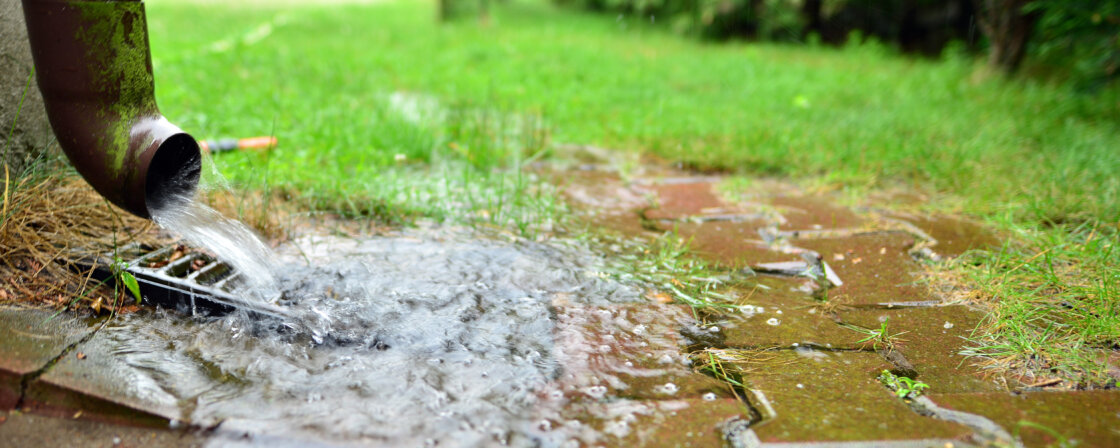How does a neighbour flood the property
Flooding of your property by a neighbour can happen in several ways. The most common ones include:
- Sloping land: If your neighbour’s land is on a hill above your land, water naturally flows from their land onto yours.
- Clogged drainage systems: If your neighbor has drainage systems or gutters that are clogged or not properly maintained, this can result in excess water flowing onto your property during heavy rains.
- Building structures without proper drainage: Construction of buildings, driveways or other structures without proper drainage can result in water being directed onto your property.
- Failure of a retaining wall: If your neighbor has a retaining wall that fails, it can result in soil erosion and water running onto your property.
- Harmful Intent: Don’t have a good relationship with your neighbors? Flooding can also be intentional in order to cause you harm.
Tip for article
Are you bothered by noise or smells coming from your neighbours? It may be immissions, which in many cases are illegal. Find out how to defend yourself in our next article – How to deal with problem neighbours.
Land drainage and the law
The neighbour’s water is classified as immission. Immiseration includes anything that can pass from your neighbour’s land or flat to yours, thereby causing a nuisance and actually interfering with the ownership of your land or flat. In addition to your neighbour’s water, this includes, for example, smoke, noise, light and animal intrusion. Emissions are divided into direct and indirect.
- Direct emissions are deliberate and so in the case of water, this would be a situation where, for example, a neighbour’s gutter was deliberately directed onto your property or perhaps the poor building structure of a neighbour’s house was causing flooding on your property. Such immiserations are always prohibited except for easements.
- Indirect emissions, i.e. unintentional emissions, would be the case, for example, if your land is lower than your neighbour’s land and water naturally flows from his land onto yours. These are not prohibited.
As it follows, the neighbour must not deliberately divert water from his land onto your land. However, if water flows naturally from your neighbour’s land, you will need to drain your own land and possibly your house appropriately using downspouts and drains.
Are you solving a similar problem?
Do you have problems with your neighbours?
In case of flooding of the apartment or flooding of the land by a neighbour, an agreement is usually sufficient. In some cases, however, the neighbour refuses to cooperate. In this case, leave the solution to us. We will send a summons or a lawsuit on your behalf and represent you in court.
I want to help
- When you order, you know what you will get and how much it will cost.
- We handle everything online or in person at one of our 6 offices.
- We handle 8 out of 10 requests within 2 working days.
- We have specialists for every field of law.
How to defend against poor drainage on your neighbour’s land
If water from your neighbour’s land is flowing to you because of situations that fall under direct emissions, you can ask your neighbour to remedy this, for example by draining the gutter outside your property or by making proper drainage for your house. The first step should therefore be to agree with your neighbour. However, if the agreement does not work, you can try sending the neighbour a pre-action notice.
This serves mainly as a last warning before you sue, but without having to pay a court fee and risk paying the neighbour’s litigation costs as a last resort. In addition, if a solicitor sends it directly, you have a better chance of your neighbour taking it seriously. Based on our internal statistics, we have verified that more than 70% of cases are then quickly settled or at least partially settled.
If even a pre-action notice does not work, all you have to do is file the lawsuit itself. If you win the lawsuit, your neighbour must remove the condition causing the water to flood your property. For example, they must make proper improvements to their building or land. If he does not remove the condition, you can seek court enforcement.
Tip for article
You will only succeed in court if your lawsuit is bulletproof. Our attorneys will carefully analyze your case and prepare a pre-suit demand, a lawsuit, an appeal, or straight to representing you in court to vigorously enforce your rights.
If your property has been damaged by your neighbour’s water, you can also sue your neighbour for damages. The neighbour would then be obliged to restore your property to its original condition (e.g. repair the flooded cellar). If repair is not possible, the neighbour must compensate you financially.
How does a neighbour flood a flat
Almost everyone who has ever lived in an apartment has experience with flooding. This is not unusual. The most common reasons for flooding include:
- Problems with leaking pipes: One of the most common reasons for flooding is a leak or burst pipe in a neighboring apartment. This can occur due to aging pipes, corrosion or poor maintenance. Water from a burst or leaking pipe can easily seep into walls and floors and affect neighboring units.
- Faulty appliances: faulty appliances such as washing machines, dishwashers or boilers can flood apartments below in no time.
- Overflowing water: If a neighbor leaves the faucet running at the bathtub or sink and forgets about it, or perhaps a toilet gets clogged and overflows, it can lead to water leaking into neighboring units.
Tip for article
Are you a member of a condominium or housing cooperative and have a problem with neighborhood immissions? Arrange with us to represent you at a meeting of owners or members of a housing association. We can help you with consultation and preparation for the meeting, or attend the meeting directly to represent your interests and protect your rights. We will see that everything is conducted in accordance with the law.
What the law says about flooding a flat
The person who caused the flooding is responsible for flooding the home. This applies in cases where the flooding is caused by neglect of prevention (e.g. when a neighbour forgets to turn off the running water in the bath), neglect of mandatory maintenance (e.g. in the case of a burst pipe) or a faulty appliance.
Carefully document the damage caused with photos and video. This will come in handy as evidence in the event of disputes.
How you can defend yourself against your neighbour flooding your flat
You should inform your neighbour as soon as possible about the fact that he or she has flooded your flat. If your neighbour is insured for flooding, you will be reimbursed by their insurance policy. If your neighbour does not have insurance but you do, the insurance company will pay the compensation and then recover the amount from your neighbour. However, if neither of you has insurance, the process of recovering compensation will be up to you.
If neither of you is insured, it may be worthwhile to have an agreement drawn up. This should state the nature of the damage and how the damage will be repaired and the cost of repairs paid. This will help you avoid any future disputes. If you have our solicitor draw up the agreement, you are guaranteed that everything will be in order legally and you will have convincing evidence in the event of any problems with payment.
If the neighbour refuses to repair or pay for the damage, you have no choice but to send a pre-action notice and then, if necessary, to take legal action . We will be happy to help you in this situation as well. You can handle all communication with us online or by phone. Once you have uploaded all the relevant documents at your disposal, you will receive a first draft of the solution within 48 hours.
Summary
Flooding of a property or flooding of a flat by a neighbour is one of the common neighbourhood problems. Property flooding most often occurs due to sloping terrain, clogged drainage systems, poorly designed structures, or failure of a retaining wall. Legally, water is classed as an imposition – if a neighbour deliberately brings it onto your property, it is a prohibited direct imposition. Natural run-off of water is permitted and the owner of the affected land must provide adequate drainage.
The solution is to first negotiate with the neighbour or issue a pre-action notice. If the problem persists, a lawsuit can be filed, seeking modification of the neighbour’s land or compensation for damages.
Flooding of a flat by a neighbour is usually caused by leaking pipes, faulty appliances or overflowing water. The guilty party is liable for the damage and, if insured, their insurance policy covers the costs. If there is no insurance, a compensation agreement can be drawn up. If the neighbour is unwilling to pay, it is possible to recover the damage through the courts. In all cases, the key is to document the situation well and to contact a lawyer in the event of a dispute.




